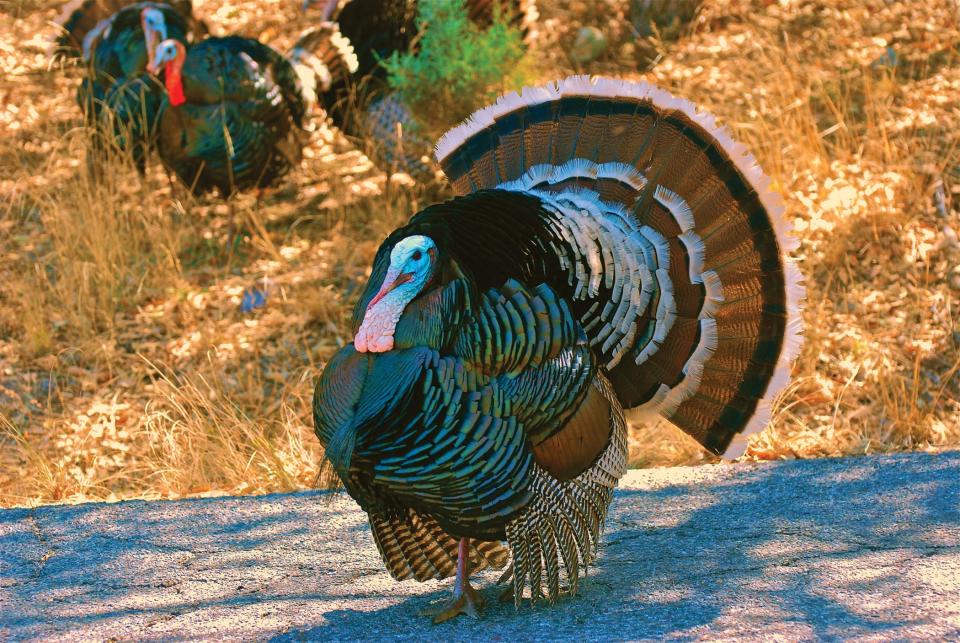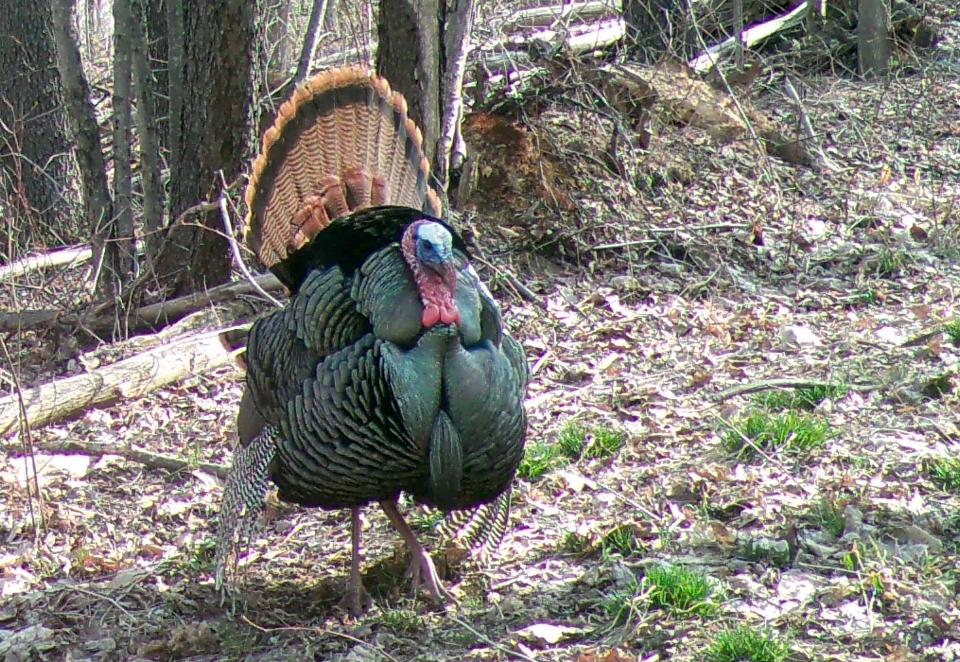Wild turkey season is here. What you need to know before heading out.
Thanksgiving may still be a few months away, but for Bay State hunters, its turkey time.
Monday marks the start of the spring wild turkey hunting season in Massachusetts, which lasts through May 25. During the season, hunters are allowed to bag two bearded turkeys, which may be culled on the same day. Per the Massachusetts Division of Fisheries and Wildlife (MassWildlife), wild turkey hunting is allowed in Wildlife Management Zones 1-13 (excluding Zone 14, which consists of the island of Nantucket) Monday through Saturday from a half hour before sunrise until noon through the end of the season.
Wild turkey hunting is open to both Massachusetts and out-of-state hunters with proper licensing and permits. All hunters using a firearm must have an official safety sticker that is visible to others while sighting down the barrel.
Before heading out, here are some of the things you'll need to have, as well as some of the dos and don'ts when it comes to hunting the official game bird of Massachusetts this spring season.

What do I need?
All wishing to hunt turkeys in Massachusetts must purchase a turkey permit, which is $10 for Bay Staters and $20 for out-of-state hunters. Mass. hunters must also have or purchase a Resident Hunting license ($33), while non-residents are required to purchase a Big Game license ($105). Both licenses come with two antlered deer tags that can be used in the fall and does not include the $5 Wildlands Conservation Stamp, which is required with the first license purchased per year by Mass. residents and with any license purchased by out-of-state hunters.
For firearms, hunters are allowed to use either a shotgun, up to a 10 gauge, or a muzzleloader, up to a .775 caliber smoothbore muzzleloading shotgun. No shot above a #4 may be used and all firearms must be labeled with a visible safety sticker, which can be acquired at any MassWildlife office or by mail after sending an email to mass.wildlife@mass.gov. Archers must use bows with a draw weight of at least 40 lbs. and a peak draw of 28 inches and arrows with steel broadhead blades that are at least ⅞ inches thick. Airbows are prohibited while crossbows are only allowed for permitted disabled hunters.
Hunters are allowed to bring another licensed turkey hunter along with them to call turkeys, though those callers are not allowed to carry a firearm or archery equipment if they've already reached their bag limit for the season.
Unlike in the fall season, blaze orange hats or clothing are not required to be worn while hunting.
More: Meet the three pairs of sisters hoping to lead Dighton-Rehoboth softball to glory
What am I not allowed to do?
All hunters are limited to two bearded birds per season, with the "beard" being the plume of dark, hair like feather protruding from the chest of males and some female eastern wild turkeys. Non-bearded hens are off limits during the spring season.
No electronic calls, dogs, bait, live decoys or drive/heard turkeys can be used to assist in the hunt. Hunters are also prohibited from intentionally leaving a dead or wounded turkey behind without making a reasonable effort to retrieve it, unless the carcass is unfit for consumption or taxidermy purposes.
Hunting is not permitted on Sundays in Massachusetts or outside of the set season hours Mondays through Saturdays. Wild turkey hunting will be prohibited after noontime on May 25 until the start of the fall season, 30 minutes before sunrise on Oct. 7.
For more specifics on the rules of wild turkey hunting, consult the Code of Massachusetts Regulations and Chapter 131 of the Massachusetts General Laws.

What do I do after the hunt?
All carcasses must be reported to MassWildlife within 48 hours of being culled either in person at an official spring turkey check station or online via the MassFishHunt website. Hunters must fill out and place a paper tag given with their turkey permit on the carcass immediately after harvest which are not allowed to be removed until after being reported and prepared for either consumption or taxidermy purposes. The carcass must also remain fully intact until then.
For harvests reported online, the provided confirmation number must be written on the tag placed on the carcass.
Cameron Merritt is the Massachusetts Outdoors Columnist for the USA TODAY Network. Primarily a sports reporter and photographer for the Taunton Daily Gazette, he can be reached at cmerritt@tauntongazette.com.
This article originally appeared on The Taunton Daily Gazette: What to know about the spring wild turkey season rules and regulations

